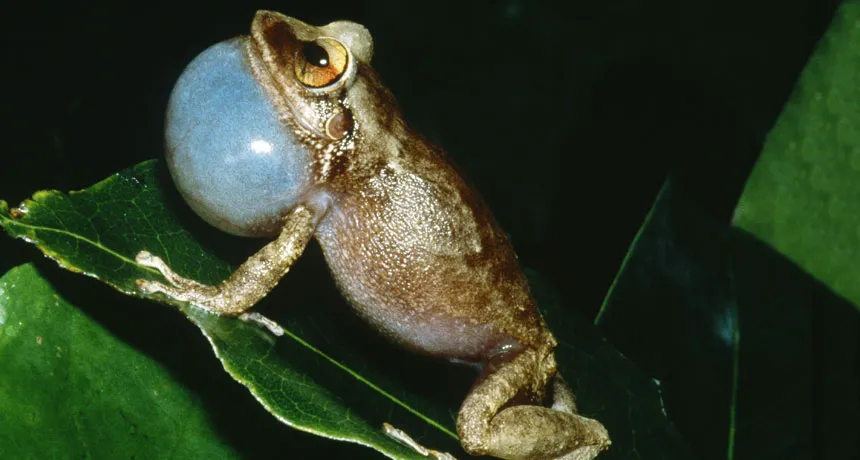Coquí frogs got smaller, squeakier as climate warmed
Amphibians on a Puerto Rican mountain changed chirps over 23 years

GETTING WARM Puerto Rico’s iconic coquí frogs may be chirping a little differently as climate warms.
Dante Fenolio/Science Source